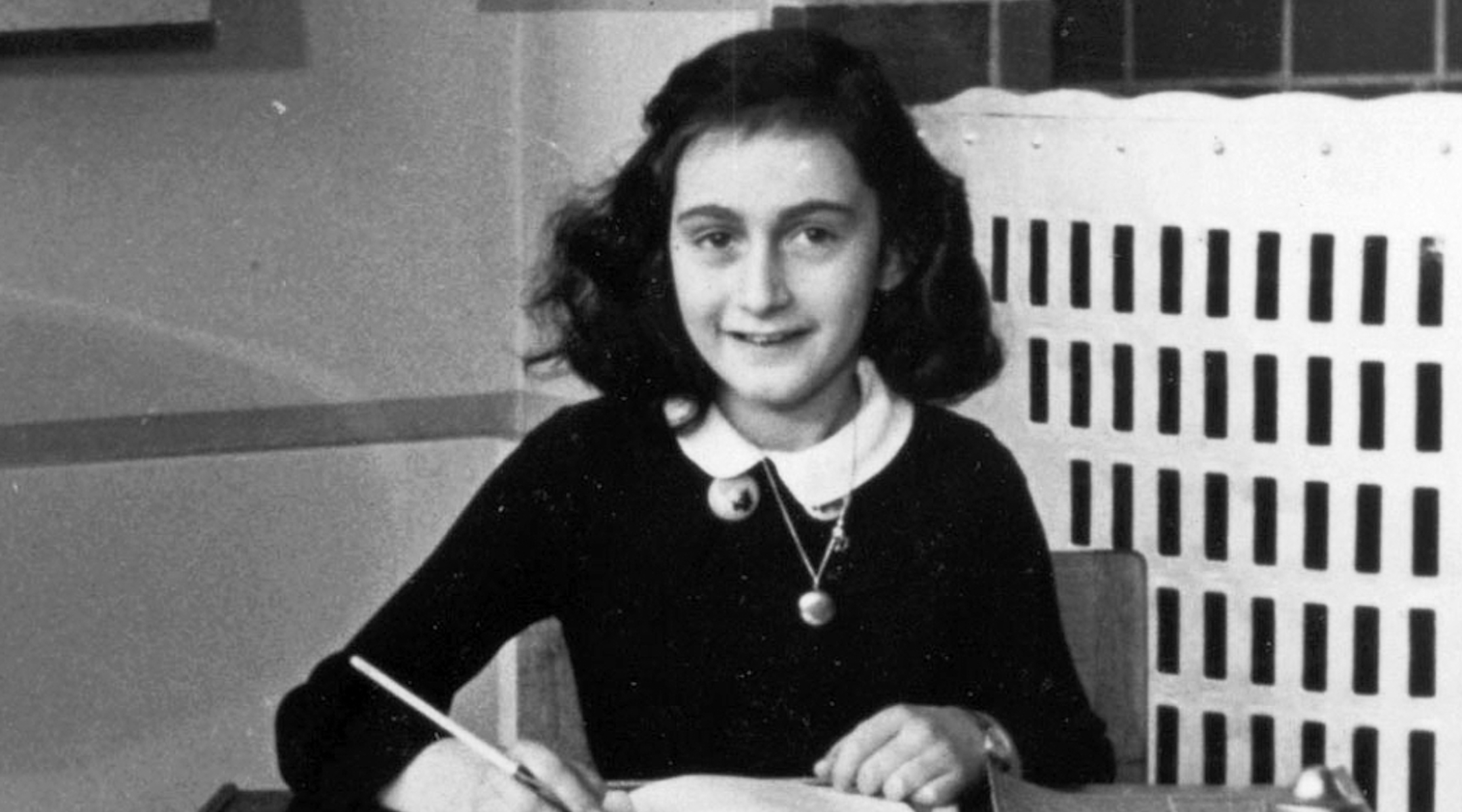 Anne Frank; Photo courtesy of Wikimedia Commons
Anne Frank; Photo courtesy of Wikimedia Commons When I was nine years old, I became absorbed in the world of Anne Frank.
That year, my Catholic mother pressed Anne’s diary into my hands with the same sweet urgency with which Anne recorded Edith Frank pressing a prayer book into her own, stating: “Read this.”
Years later, a secondary school classmate borrowed my copy. In transit, she asked why it was so beat up. I responded quickly that I was careless with things; rather, I was careless enough with things I was devouring multiple times a year alongside the Sweet Valley High series and “Beyond the Diary: A Photographic Remembrance.”
In truth, the Franks’ family structure was mine. I adored my father; often, like Anne, I felt that he was the only one who understood me. At times, I came to the conclusion with Anne that my father and my mother did not understand me. I shouted at my mother; this was before and after she sweetly pressed Anne’s diary into my hands. At times, my father, like Anne’s, encouraged me to try to understand my own mother.
Time and again this was a failed attempt, and I ran to Anne for comfort.
In truth, I reminded myself that the Franks had two daughters who perished, each with her own diary; often, I wanted to focus on the one more known to me. Externally, I was Margot in age, looks and scholastic temperament. Like that brainy, bespectacled teenager, I wrote letters to and birthday poems for my younger and sole sibling. Like Anne, she was always at the center of a group of girls and at least two boys.
Internally, I was Anne and immediately identified with her; like that teenager, I was a self-described smart aleck. God might know everything, but I knew everything better, and did not hesitate to tell family and friends so.
As a previous publication of mine put it: Anne, a self-described chatterbox and “frolicsome little goat tugging at its tether,” functions for me as an adored older sister—even as I surpassed her in age two decades ago.
August, 1944: Three days after Anne’s last entry.
A typical Tuesday morning in Amsterdam: The police in plain clothes.
A typical arrest: A group of Jews, good for 60 guilders.
A group that joyfully listens to the radio in secret, thinking that this is the year.
Of, as Anne writes, peace and a mocha cake, prewar quality.
Of, as Anne writes, looking at the world, feeling young and knowing one is free.
Quicksilver Anne, who walks the floorboards quietly, on little cat feet, for twenty-five months.
Anne is instead arrested with the others this year.
Each year on August 4, a certain former helper went into her room and shut the door. There was the sound of jackboots in the street no longer for her. Each year on August 4, I think that this year will be different. This year I will let go: of dates, photographs, and sentence phrasing, of this knowledge of a small group of people and one precociously small girl. This knowledge does not help one person.
This attempt alone, though, to push away Anne? It brings me to her. This attempt to let go.
How to let go of a world that will not let go of me?
As Anne writes in her last entry: “You can’t imagine how often I’ve tried to push away … Anne … to beat her down, hide her.” Her enormous, absorbing eyes haunt me even as I attempt to push her world out of me. How to let go of a world that will not let go of me?
Nor can I let go of the world that I want to inhabit—a dreamy world of cities. These are the usual westernized dreams for a woman of such upbringing: Chicago, New York, London and Oxford, Paris, and, since the age of nine, Amsterdam, with thanks to Anne.
These, then, are the desperate desires of my heart. To return to the city of big shoulders and little cat feet. To return to the city of dreams. To return to the city of life and to the city of dreaming spires. To return, less desperately, but still dreamily, to the city of light. To travel for the first time, with dreamy trepidation, to a citified annex, now not-so-secret.
As taken from Virginia Woolf’s imitable novel “The Hours”: “there is the life she is leading and the book she is writing.” There is the life I am living, with its continuous push of quiet, and the dreams I am having—both despite an attempt to exist in a different, writerly way.
In dreams begin responsibilities, as Delmore Schwartz believed.
Time and again I think this ora that must count for something. In my current employment as an office coordinator, nine stories up in an office building. In my current twin city as the wail of a siren goes by and I sit, dreamily, worriedly by. This brings me, again, to Anne: “if only there were no other people in the world.” This girl who was once here in the world.
Vanessa Waltz‘s writing has been published with Image, The Jewish Journal, Mslexia, PRISM: An Interdisciplinary Journal for Holocaust Educators, and the Star Tribune. She received her MA from Middlebury College and completed her studies at Lincoln College, Oxford.






















 More news and opinions than at a Shabbat dinner, right in your inbox.
More news and opinions than at a Shabbat dinner, right in your inbox.